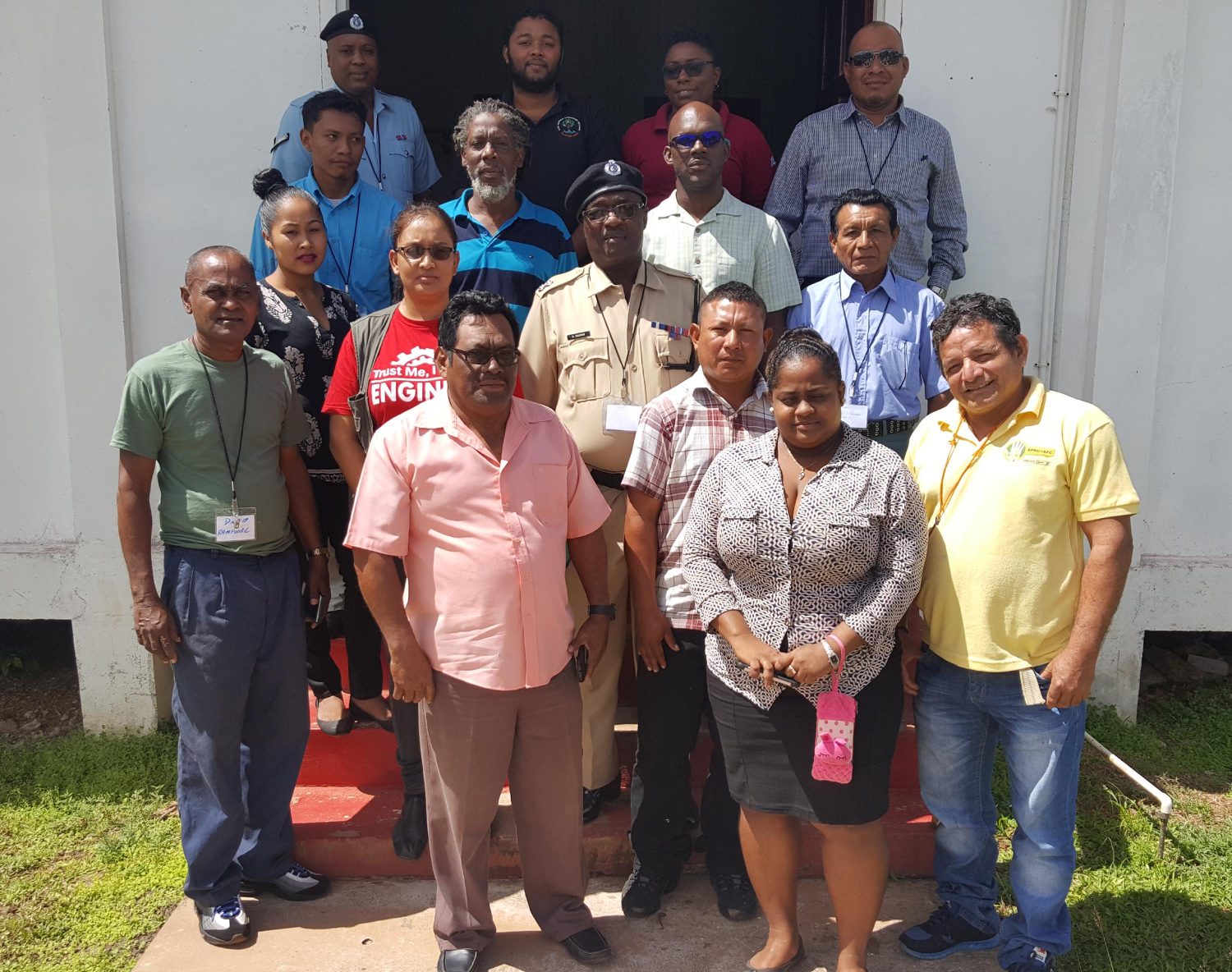Stakeholders in Potaro-Siparuni, Region Eight, are now better equipped to respond to emergencies within the Region as the Civil Defence Commission, last week, concluded the Orientation Session and Tabletop Exercise in partnership with the Regional Democratic Council (RDC).
A release from the Ministry of the Presidency yesterday said that the Orientation Session and Tabletop Exercise, which was conducted at Mahdia, was aimed at familiarising regional stakeholders with the draft Regional Risk Assessment Report and related plans.
The report and plan were developed over a four-month period, which saw several rounds of consultations with regional stakeholders.
In reviewing the draft report, the release said that the participants were able to examine preliminary information regarding risks and hazard exposure within the Region. The draft report demonstrated that the North Pakaraimas communities were most exposed to various hazard impacts. Further, key drivers of risk within the Region were found to be water pollution, dust contamination, floods, drought, crop pest and diseases, among others.
The release said that the activity saw the successful completion of a Tabletop Exercise, which tested the operability of the Regional Multi-Hazard Prepared-ness and Response Plan.
Acting Director General, Lieutenant Colonel Kester Craig said that the Commission remains committed to building Guyana’s disaster risk management capabilities through stakeholder engagements.
To date, the Barima-Waini (Region One), Pomeroon-Supenaam (Region Two), Essequibo Islands-West Demerara (Region Three), Mahaica-Berbice (Region Five), East Berbice-Corentyne (Region Six) and Cuyuni-Mazaruni (Region Seven) have completed their plans. The Commission is hoping to complete the Plans for Demerara-Mahaica (Region Four), Potaro-Siparuni (Region Eight), Upper Takutu-Upper Essequibo (Region Nine) and Upper Demerara-Berbice (Region Ten) by the end of the year.





